“Lez Girls” is hot off the press and Bette doesn’t care for it in Episode 411 “Lacy Lilting Lyrics.” We are joined by listener SSG Lauren Montoya, who reached out to us about sharing how Tasha’s fictional experience in the military compares to her actual experience as a Staff Sergeant in the army! Together, we witness Henry ripping off his toenails in front of my face, a bad day for Spacegate at Intechmode, Jodi eating an orange, Shane Daddying Jared and sniffing purses, Helena’s relationship continuing to deteriorate, everybody yelling at everybody else about who is or is not a lesbian, and Molly Kroll’s debut appearance!
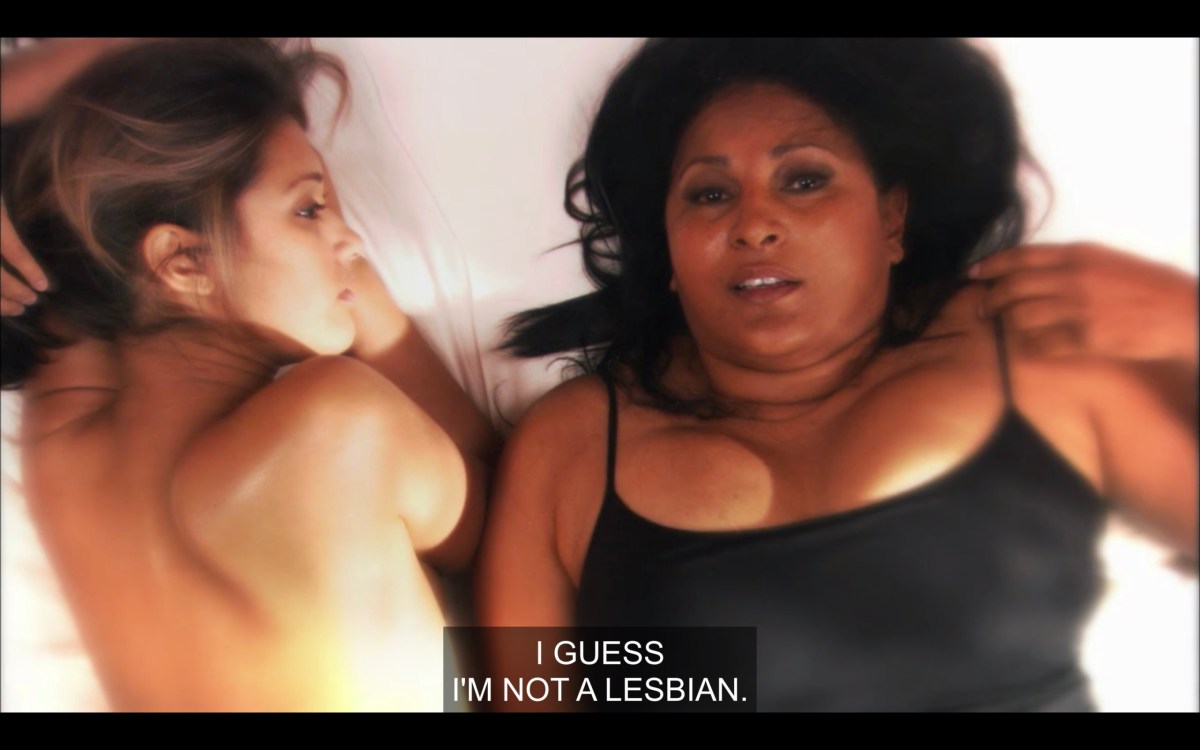
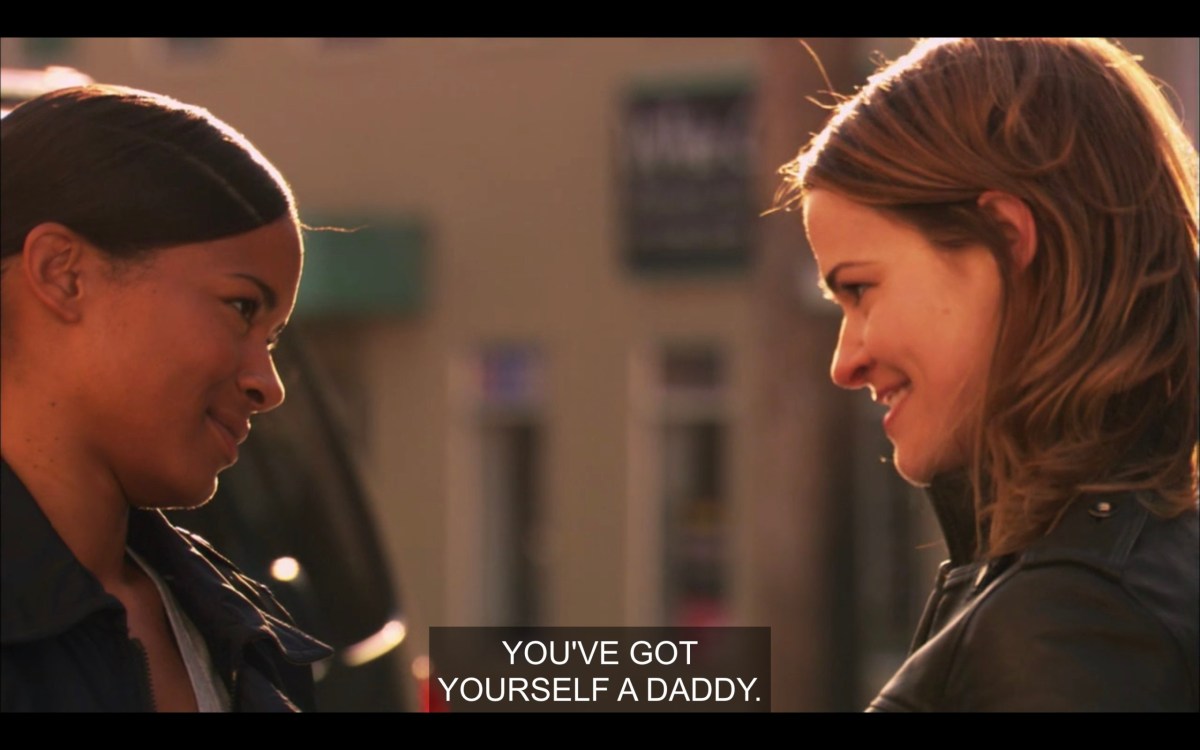
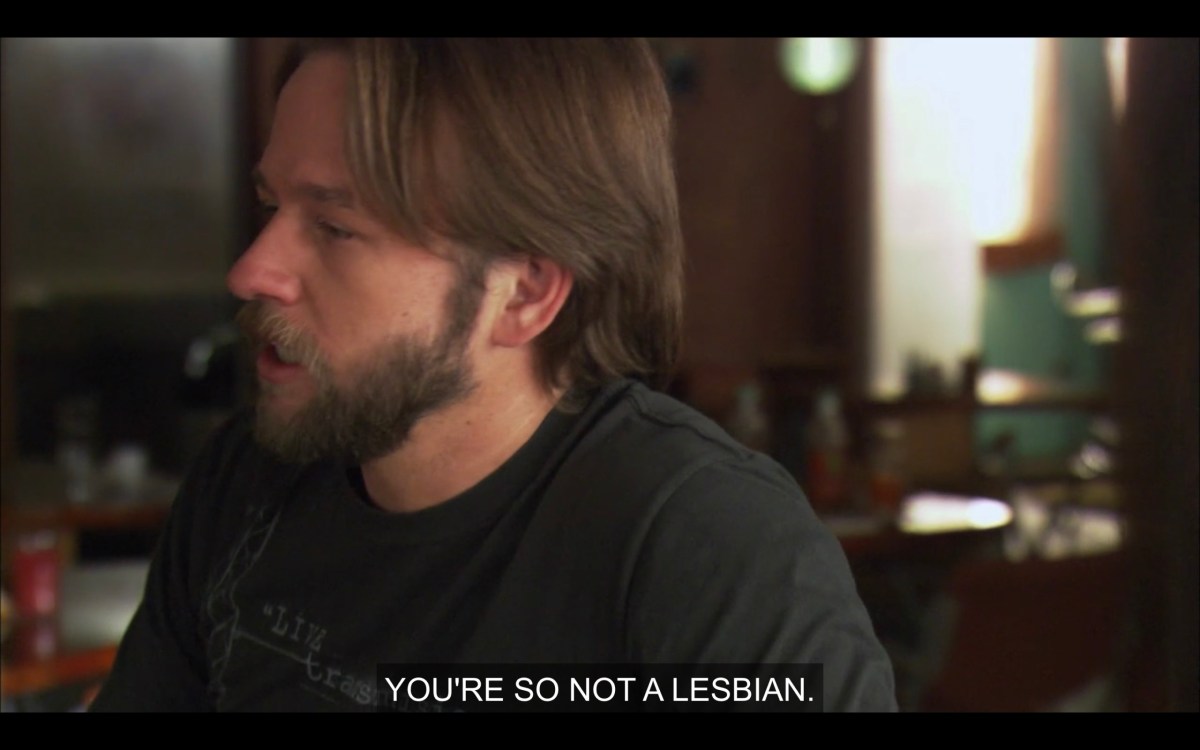
![Bette standing in front of a blue-and-green mural at an art show opening. Her hair is pinned up and she's wearing a tan and black high-collar dress. Subtitles read, "[Giggling]"](https://www.autostraddle.com/wp-content/uploads/2020/06/Screenshot-2020-06-21-18.42.45-scaled.jpg?w=1200&resize=1200%2C750)
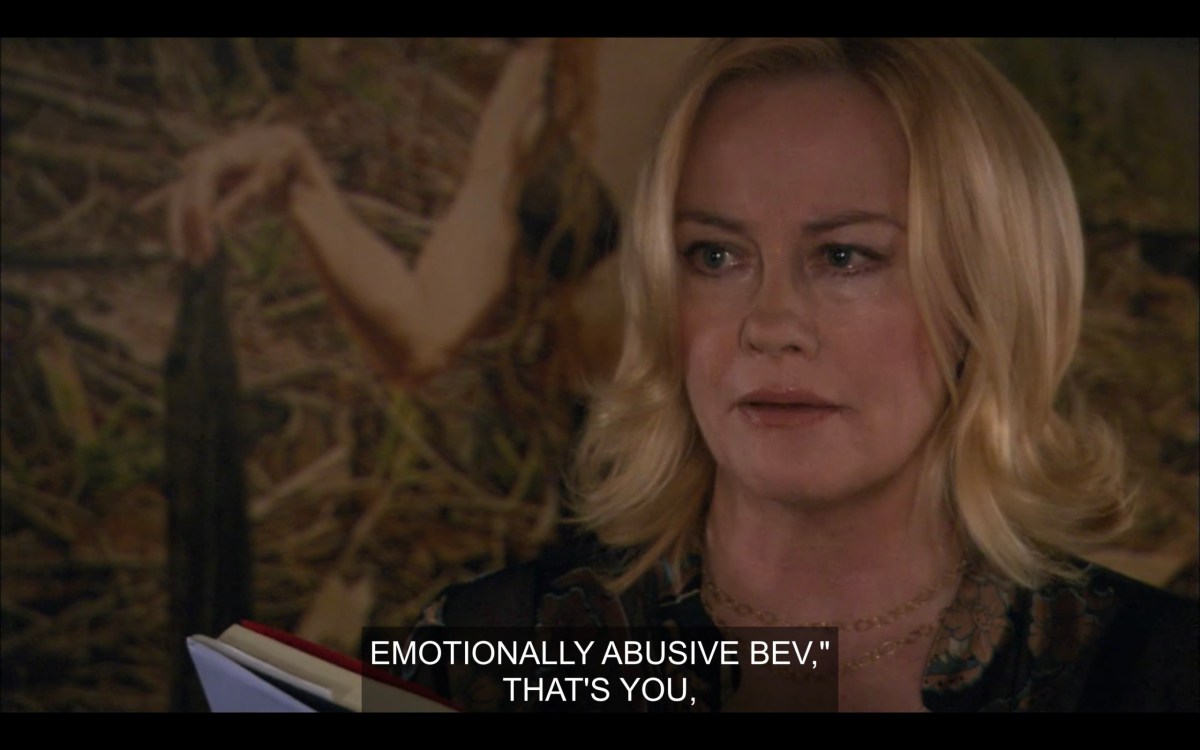
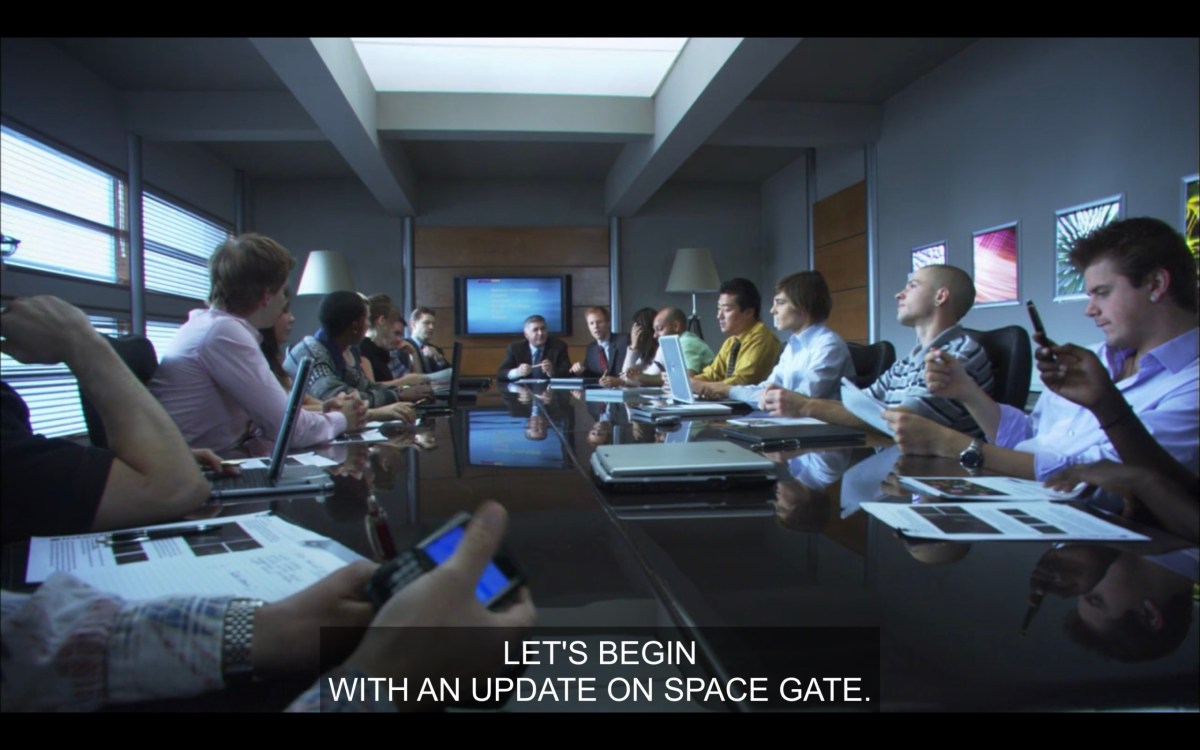
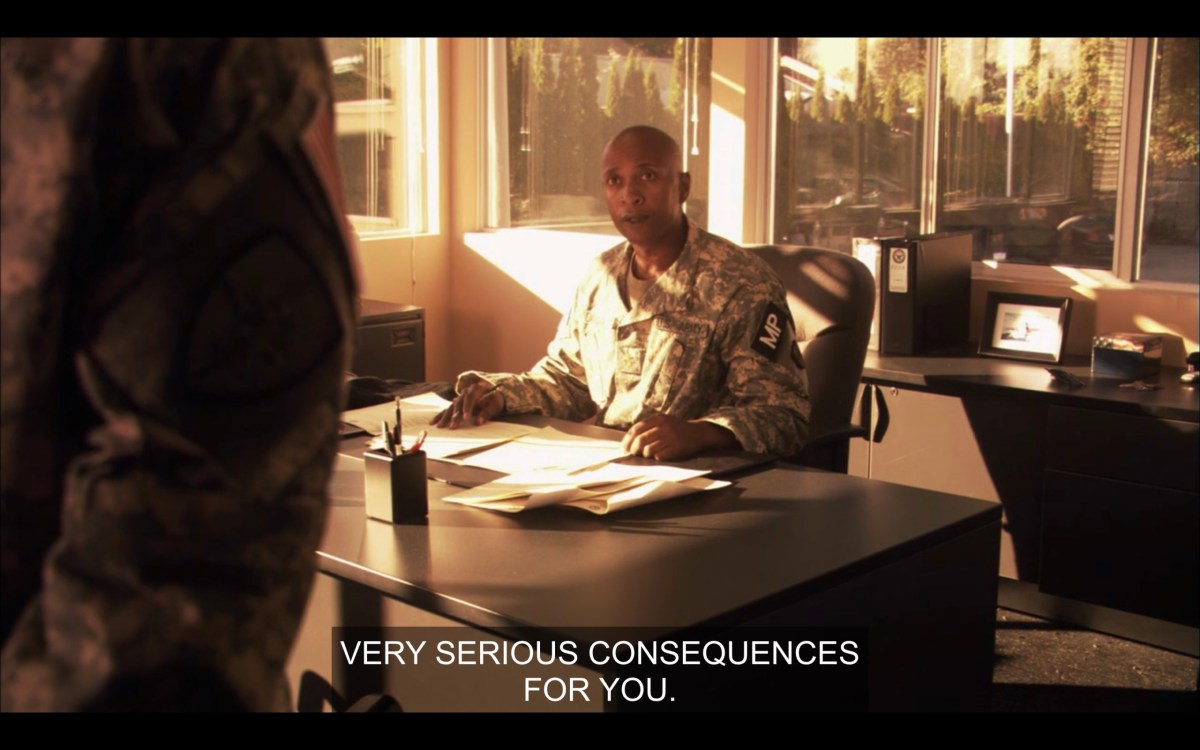
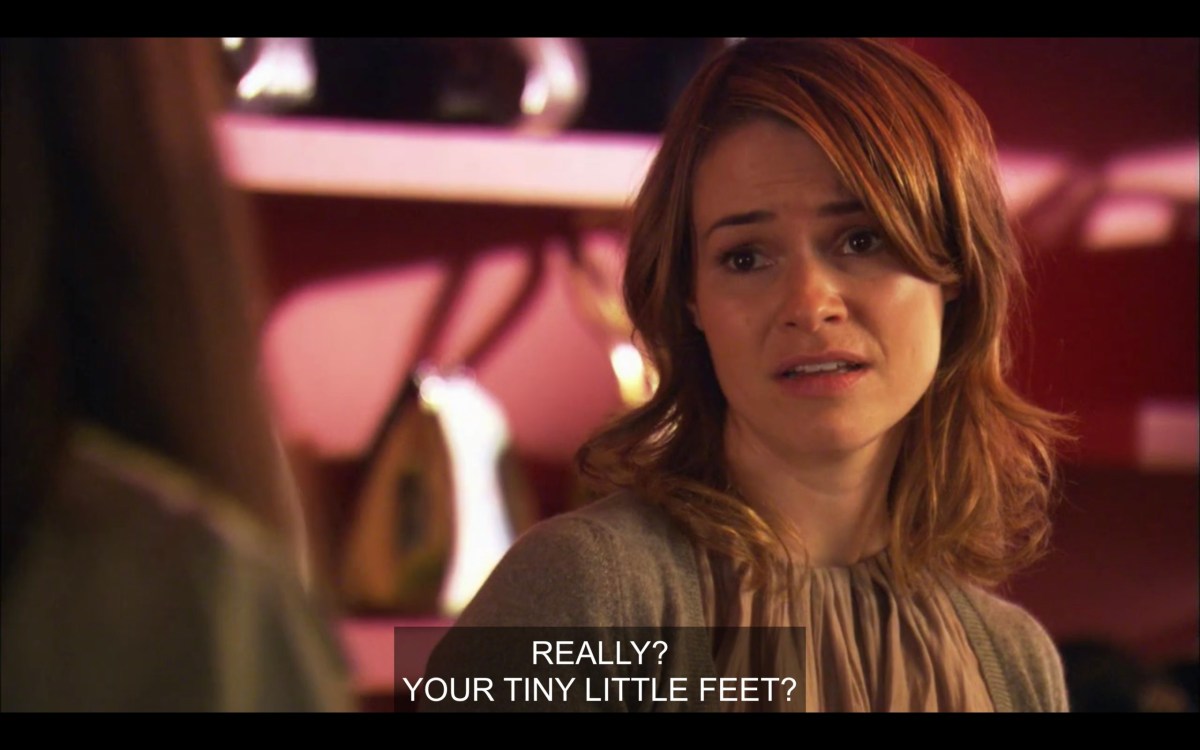

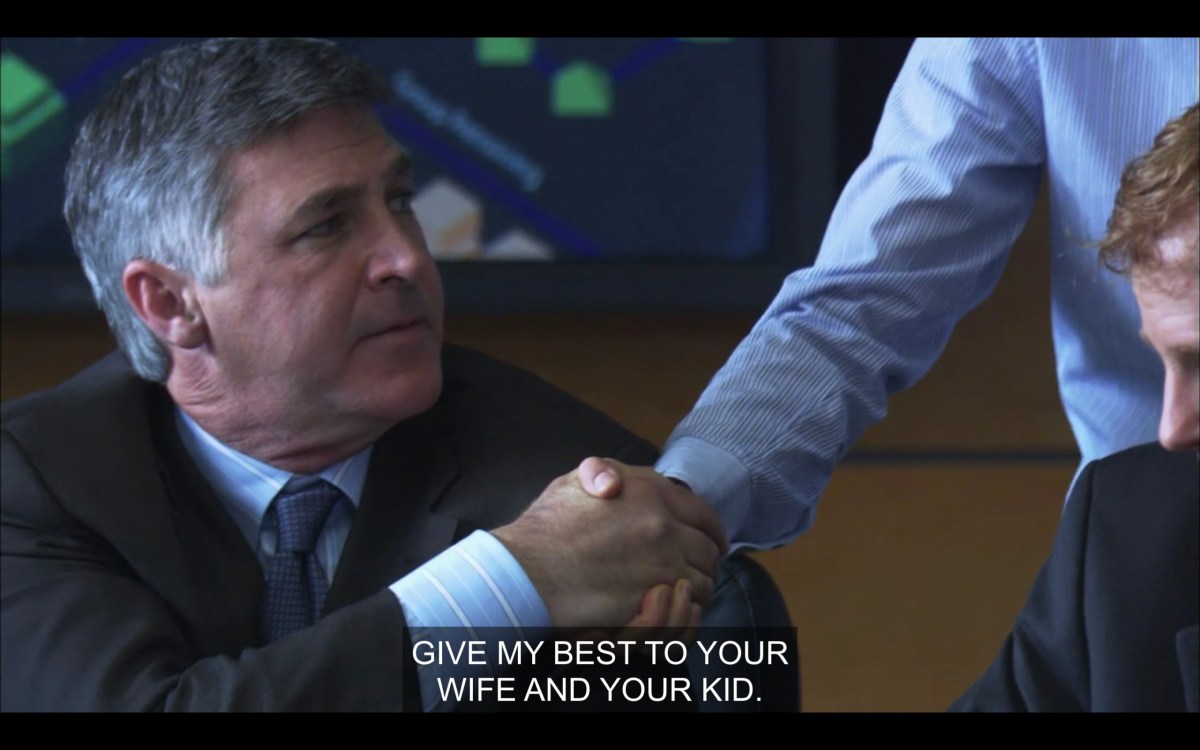
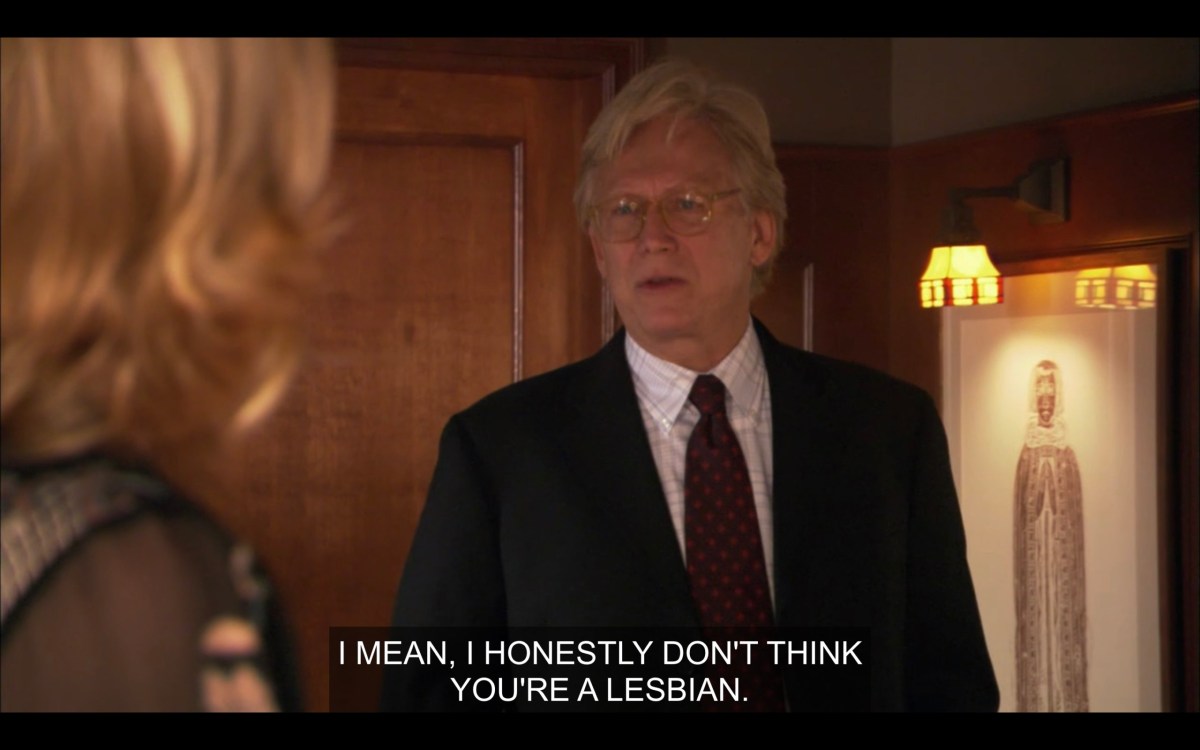
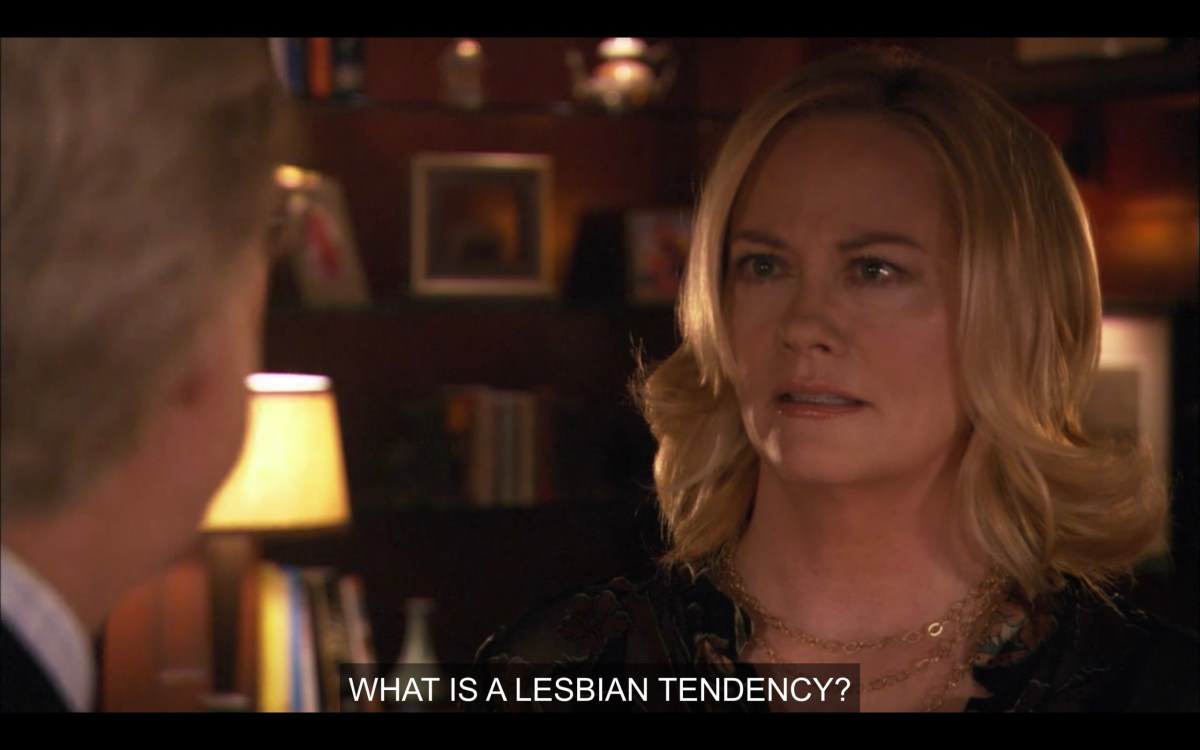
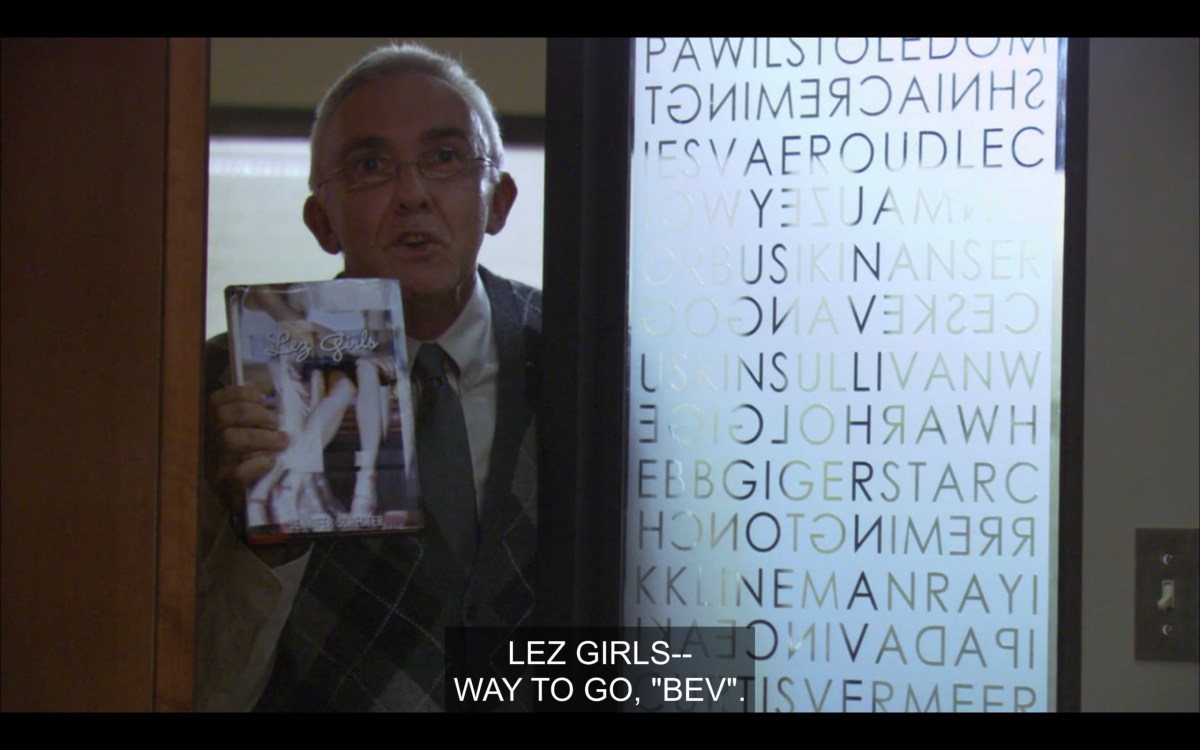
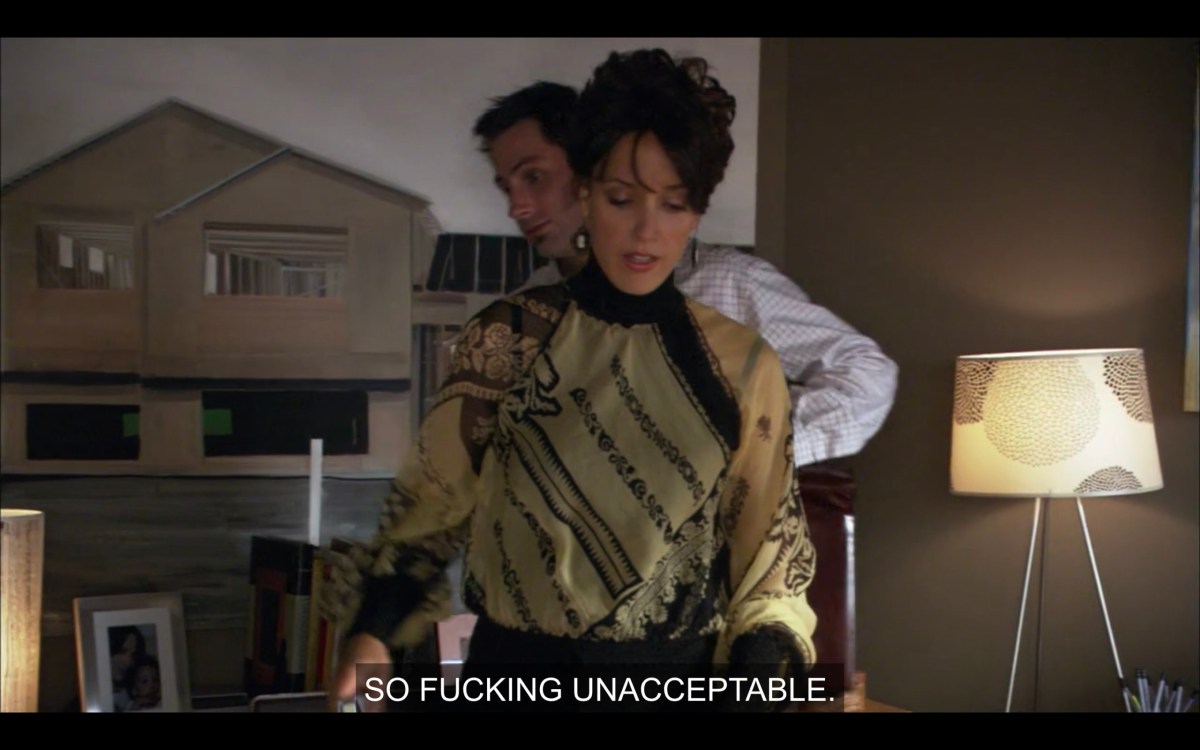
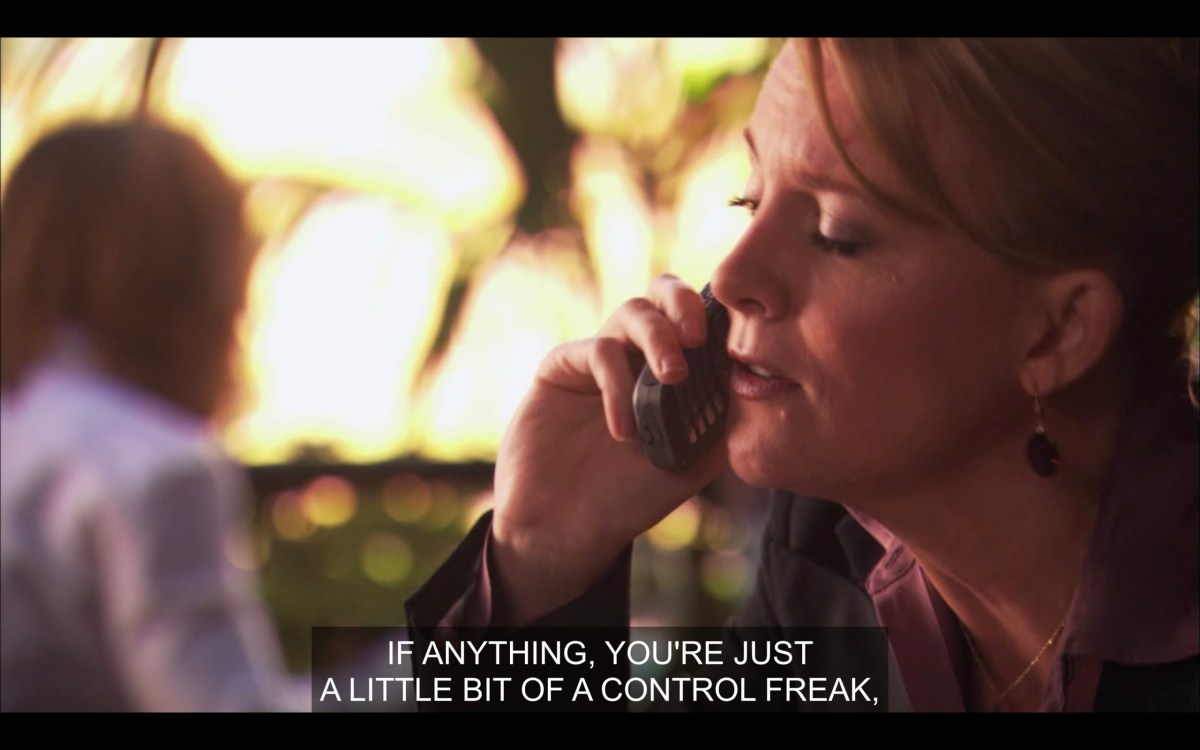


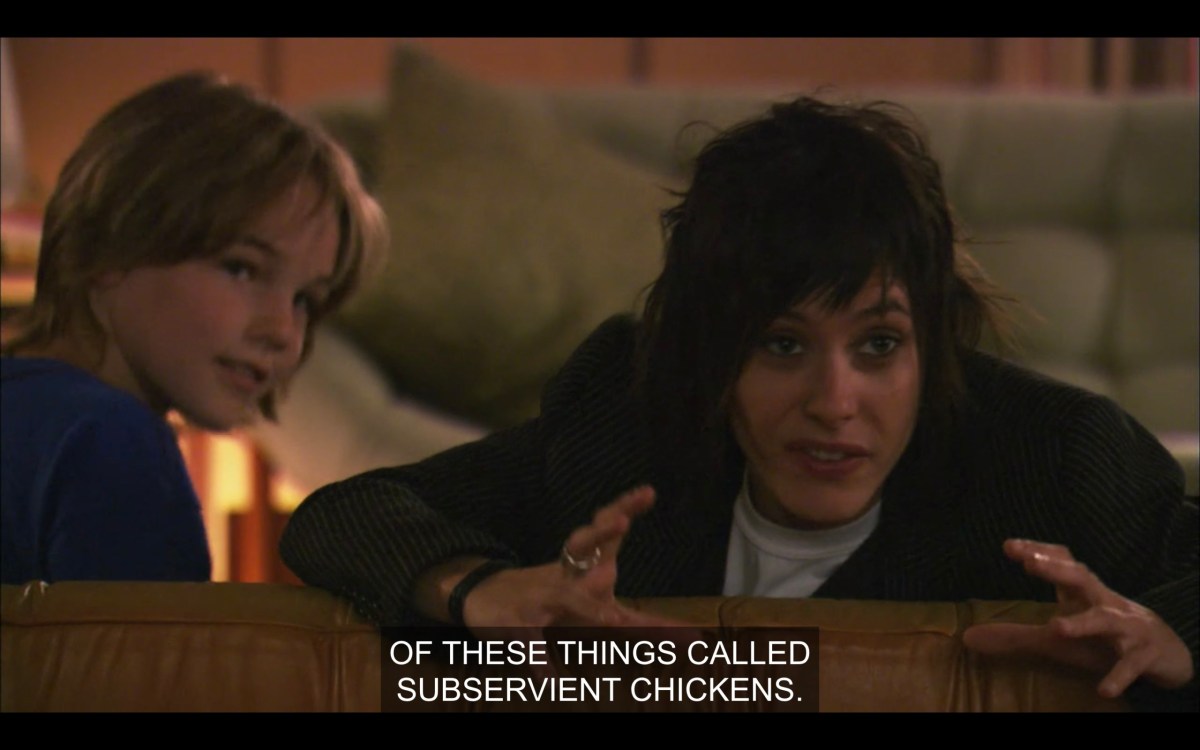
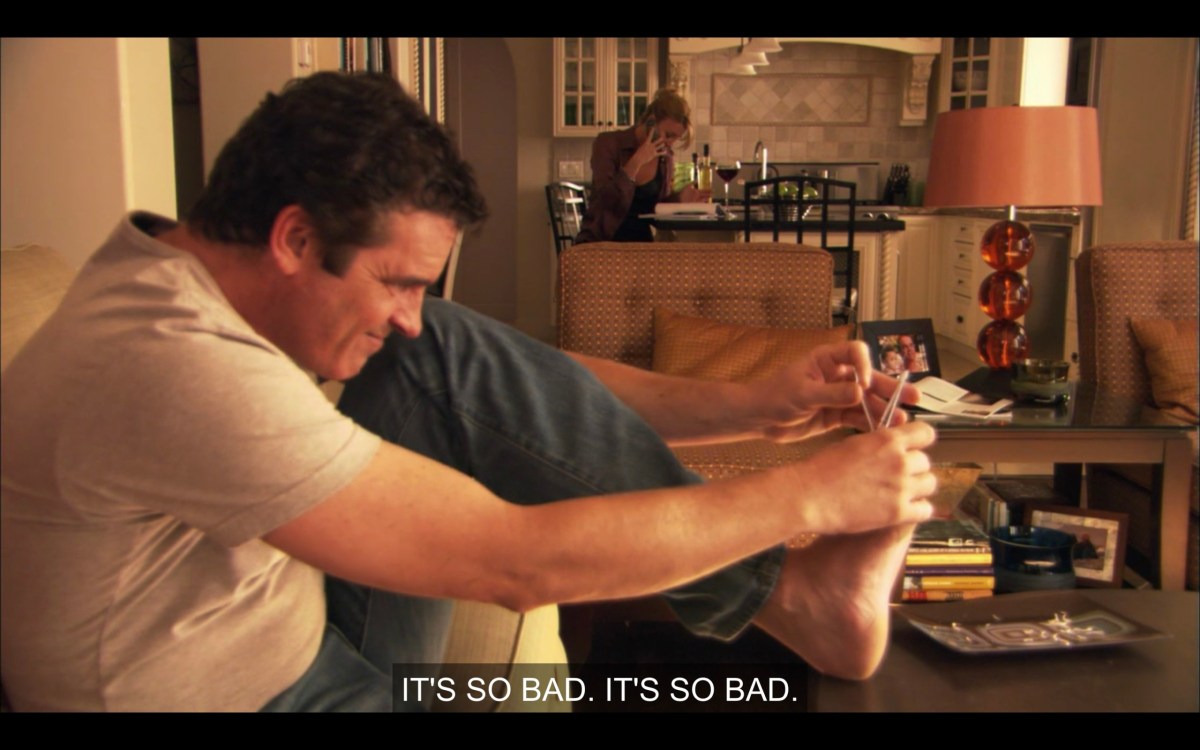

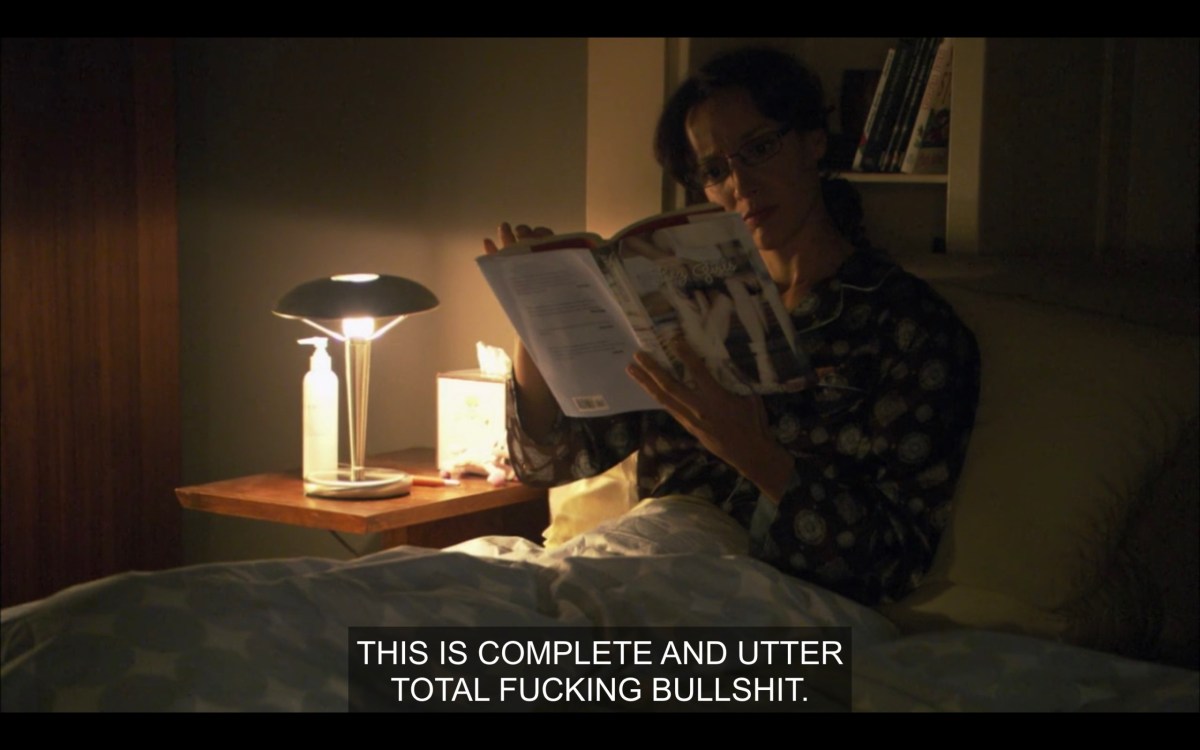
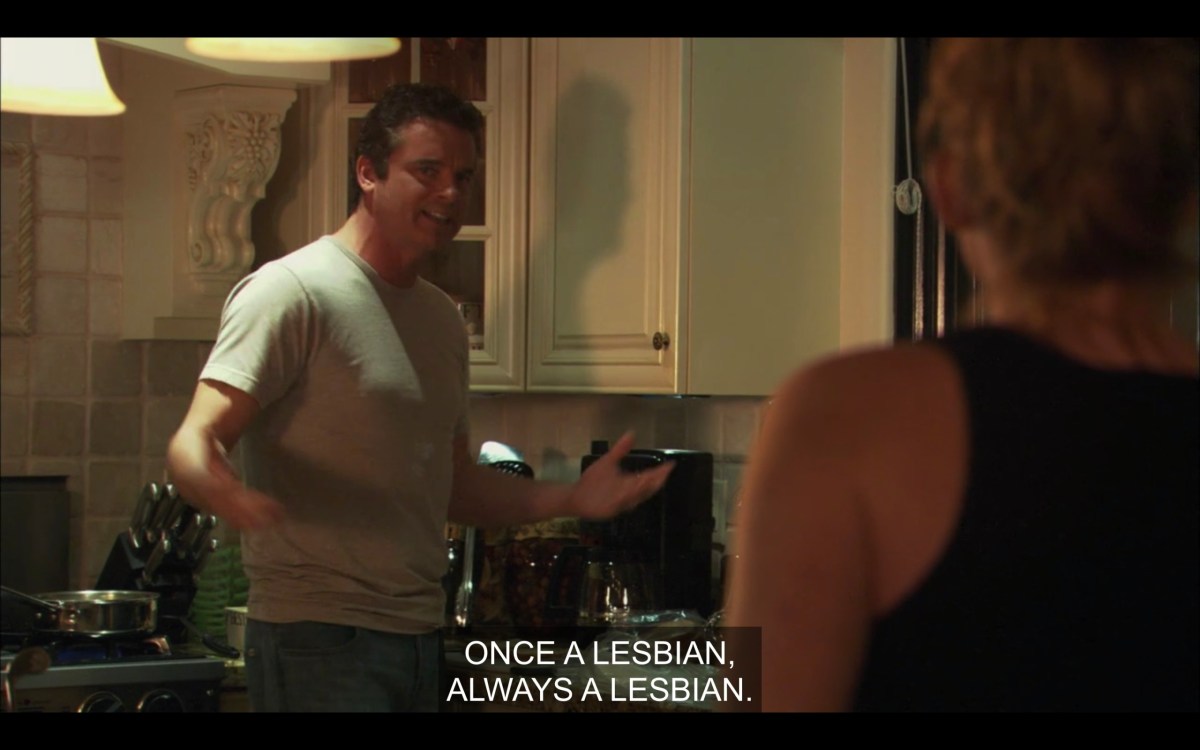
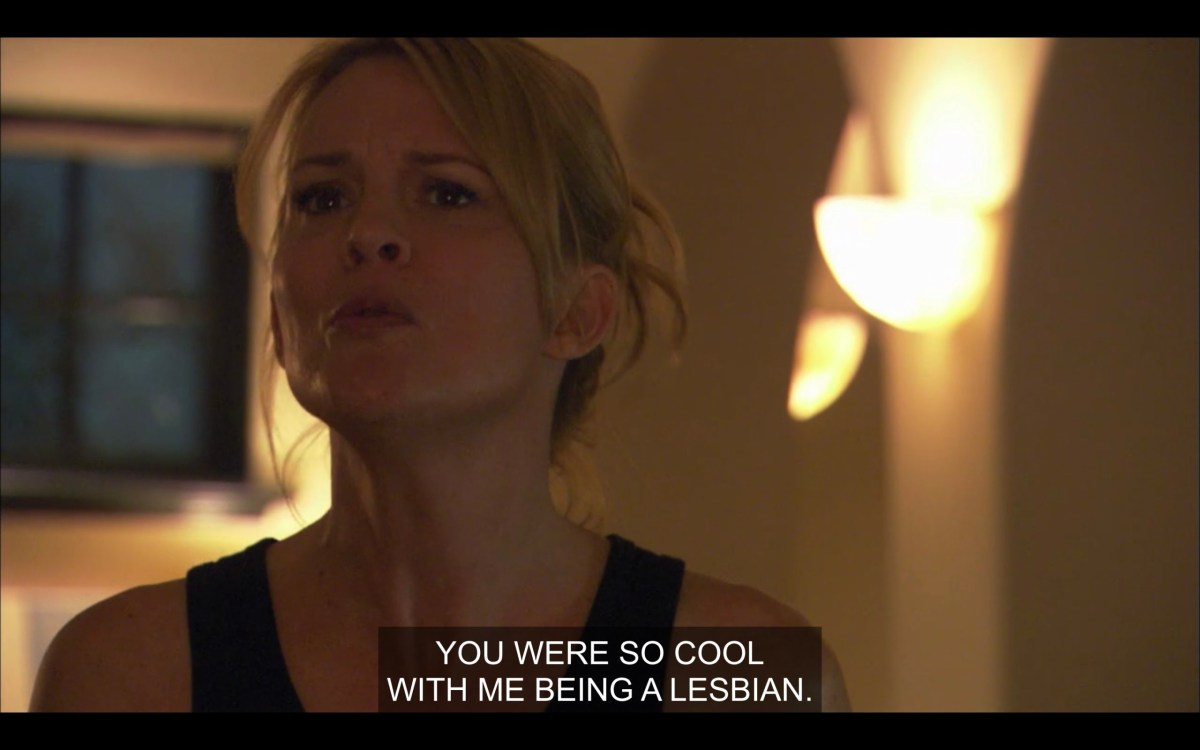
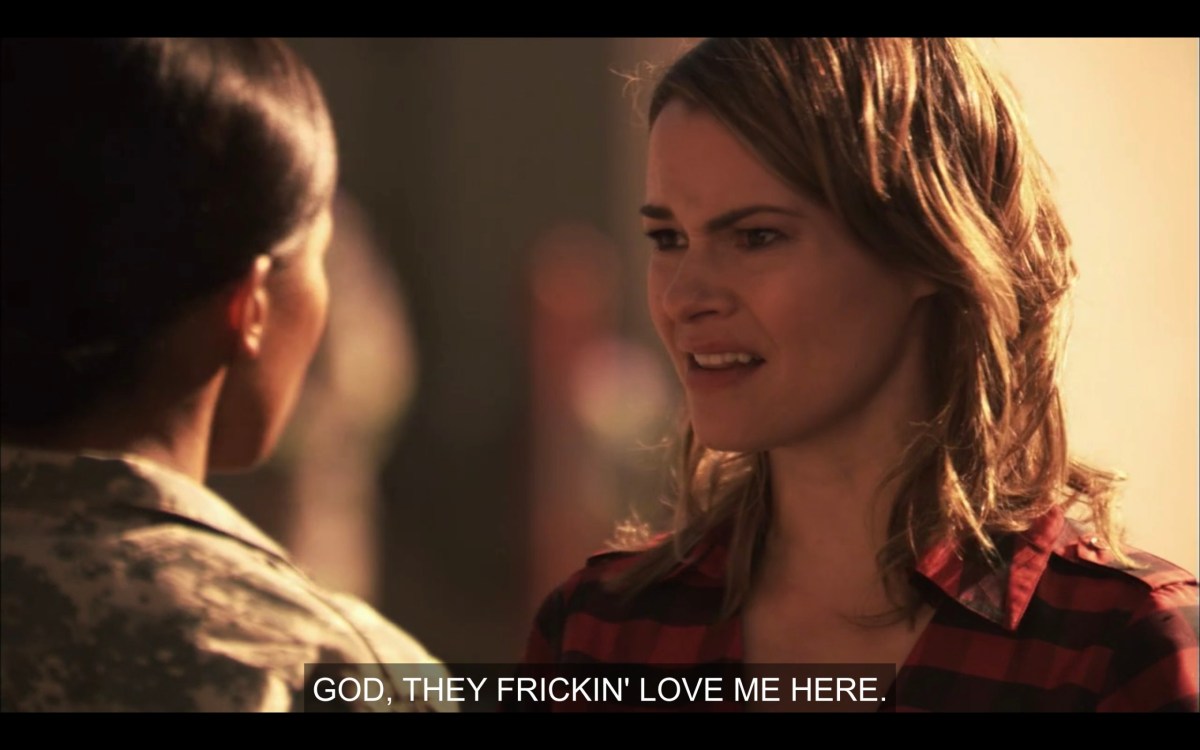


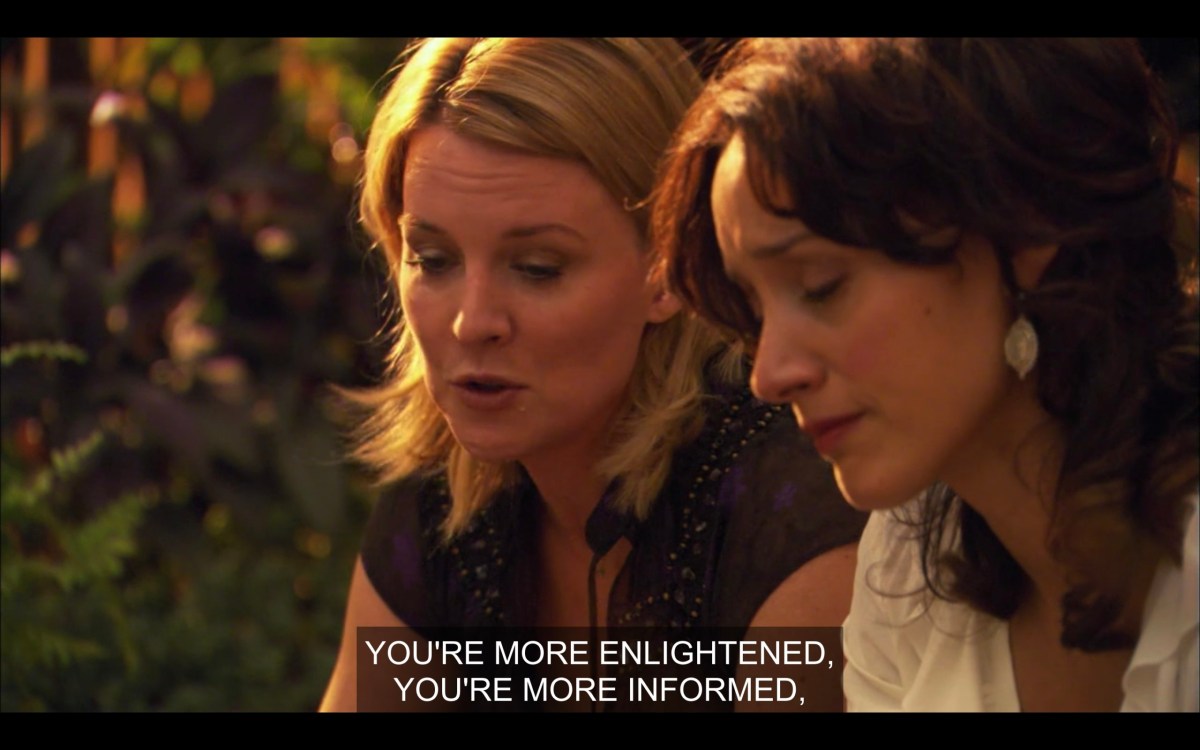

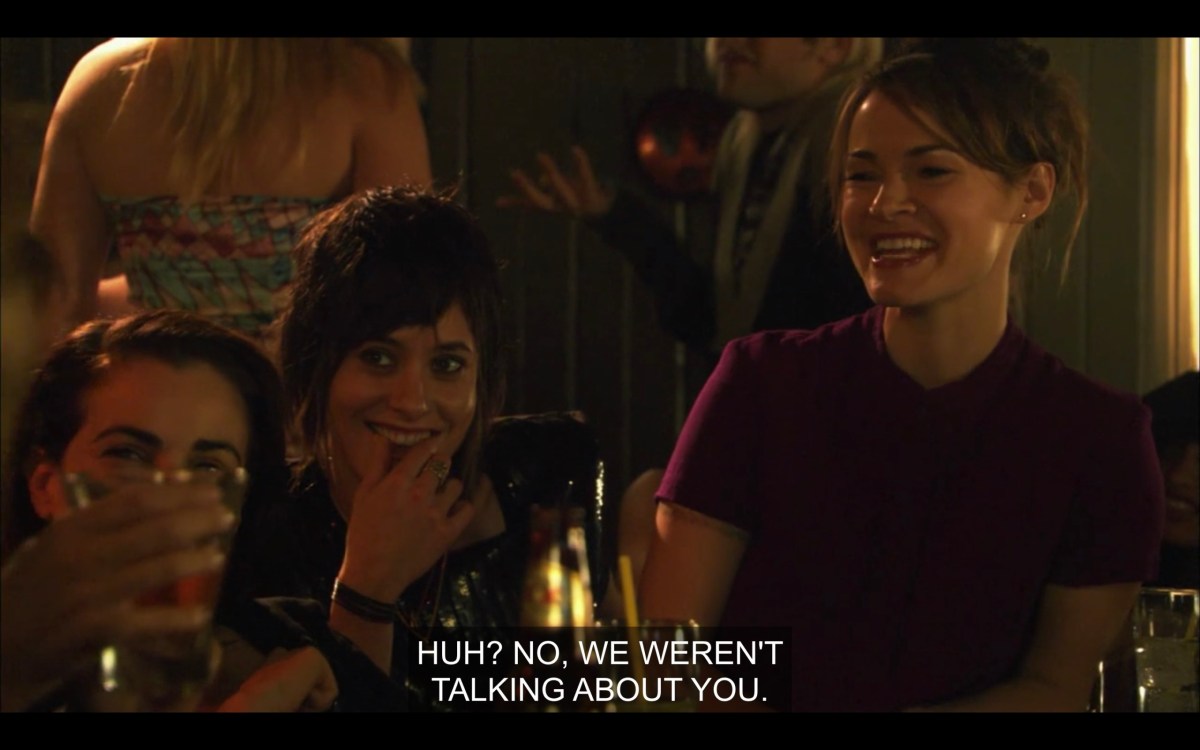
![Overhead shot of a crowded room at Jodi's art show. Subtitles read, "[Tom interpreting]: Thank you."](https://www.autostraddle.com/wp-content/uploads/2020/06/Screenshot-2020-06-21-19.20.13-scaled.jpg?w=1200&resize=1200%2C750)

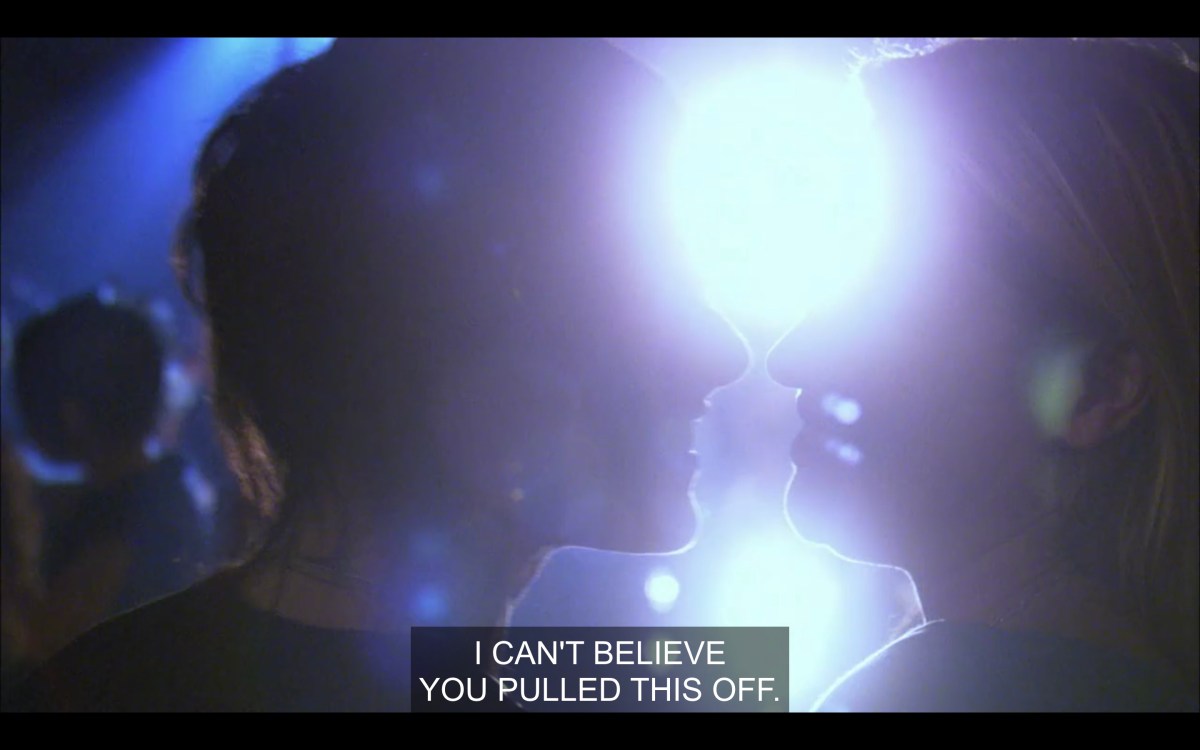
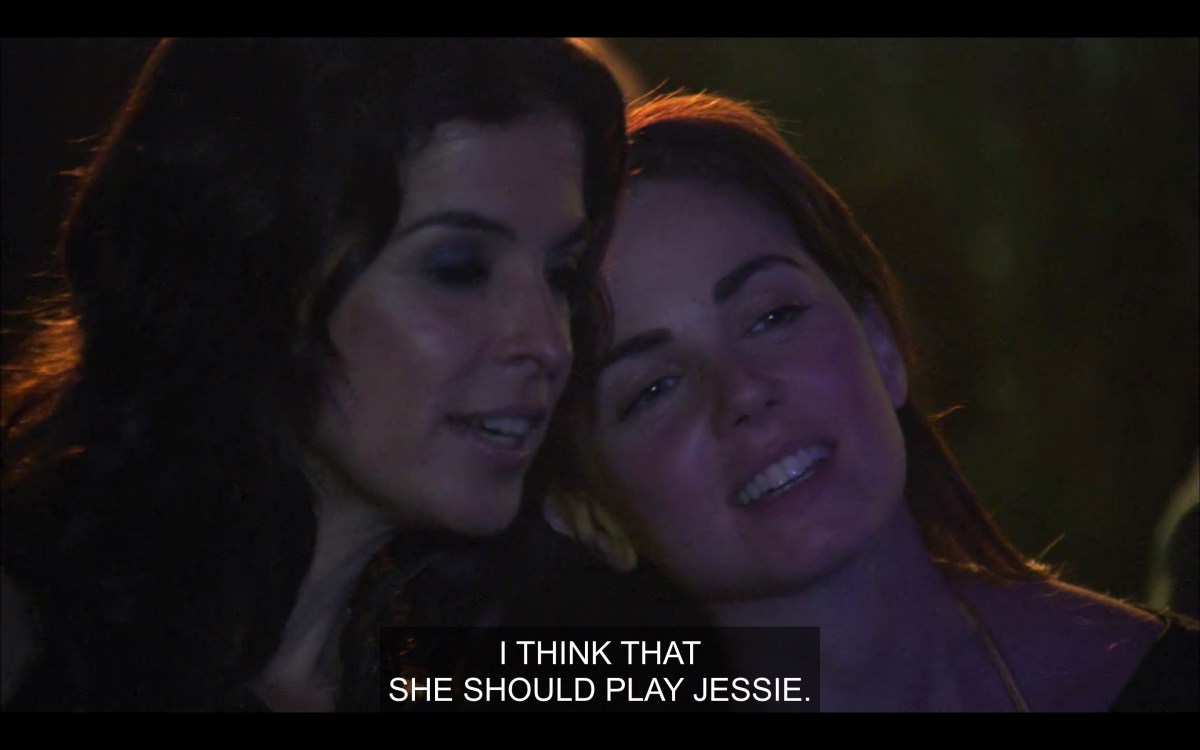



Before you go!
Autostraddle runs on the reader support of our AF+ Members. If this article meant something to you today — if it informed you or made you smile or feel seen,
will you consider joining AF and supporting the people who make this queer media site possible?
Join AF+!

Riese is the 43-year-old Co-Founder of Autostraddle.com as well as an award-winning writer, video-maker, LGBTQ+ Marketing consultant and aspiring cyber-performance artist who grew up in Michigan, lost her mind in New York and now lives in Los Angeles. Her work has appeared in nine books, magazines including Marie Claire and Curve, and all over the web including Nylon, Queerty, Nerve, Bitch, Emily Books and Jezebel. She had a very popular personal blog once upon a time, and then she recapped The L Word, and then she had the idea to make this place, and now here we all are! In 2016, she was nominated for a GLAAD Award for Outstanding Digital Journalism. She's Jewish. Follow her on twitter and instagram.
Riese has written 3342 articles for us.



![Bette standing in front of a blue-and-green mural at an art show opening. Her hair is pinned up and she's wearing a tan and black high-collar dress. Subtitles read, "[Giggling]"](https://www.autostraddle.com/wp-content/uploads/2020/06/Screenshot-2020-06-21-18.42.45-scaled.jpg?w=1200&resize=1200%2C750)

























![Overhead shot of a crowded room at Jodi's art show. Subtitles read, "[Tom interpreting]: Thank you."](https://www.autostraddle.com/wp-content/uploads/2020/06/Screenshot-2020-06-21-19.20.13-scaled.jpg?w=1200&resize=1200%2C750)









Lez girls
Lez bois
Superstar DJs
Here we go
The toenail episode. * shudders *
Not to be that person, but I find it a little strange that AS has been doing such good work around BLM, prison abolition and defunding the police but then has an entire episode of To L and Back in which the US military is discussed in an uncritical way and you have a guest who is actively serving in said military. I found it jarring. Idk, I’m not American so I’m clearly missing some patriotism but this really set me on edge. It’s totally possible to discuss Tasha’s army storyline with a critical lens.
I came here hoping that someone had already said something like this. I am American, for what it’s worth, and I also found this extremely jarring. Especially considering the resources AS has been putting together in this past month, I was extremely disappointed that there wasn’t more nuance or consideration for the really productive conversations that could be had here. The US military is in need of the same level of scrutiny, criticism and steps toward abolition as the US police and prison system, and not to acknowledge any of that for this entire episode was really icky. As a subscriber, I’m calling on AS to do way better.
A the end of the podcast, this week’s guest Lauren mentioned that while not identifying as Republican, she is someone working in the US military and so has points of view and perspectives that are different from what the average progressive or liberal would have (echoing several interactions between Tasha and others who are boldly opposed to the Iraq War). Putting aside people’s motivations for actually joining the military, what viewpoints are out there towards US imperialism and the specific campaigns being conducted? I don’t mean this sarcastically or provocatively. I would assume that the mainstream point of view for supporting the US military (working in the military or not) is based on a sense of ra-ra nationalism, a genuine conviction that the military is defending life and freedom, or just that people love the United States and want it to be as powerful as possible. Laura mentioned those ideas and said that there are other motivations and ways of looking at what the US military does.
Is the US military seen as helpful, is regime change viewed as a liberation, or the first step there towards? Is it the idea that “well, right or wrong, these invasions happened so I am on board with the current goals of the US military in its policy of COIN and support for new governments in Iraq and Afghanistan and I support the US military’s role in seeking to quell ethnic/sectarian violence, supporting the development of infrastructure and institutions, acting as a deterrent against groups that are seen as evil and harmful and through that people in these countries will have a better life, their human rights will be better protected, they’ll have power through voting and participation in civil society”? Is it just a more global (so to speak) view of what the military as a set of institutions is and its role, or a long-view with the assumption that there’s more good than harm? Can anyone enlighten me?
(Again, I don’t question why people join the military or continue to work there, there are obviously a whole range of factors and influences and the decision can very well be amoral or not much of “choice” at all, and it is after all people’s job and they can’t just quit with no consequences. I more so mean ways of looking at the military engagements themselves and what role the US military plays in the countries where it has been deployed)
Personally, I don’t see the US military as helpful and I don’t see a US-initiated regime change equating liberation or the first step thereof. The reasons this country has for invading or maintaining a presence in various countries aren’t always noble or aspirational. Even allegedly positive goals I view with skepticism, w/r/t providing a better life or democracy. I’m not sure if my view is common or not. (although the upthread comments suggest that it might be.) Clearly it is necessary on some level to have a military, that’s part of a country existing in the world (whereas I’d argue it is not necessary to have cops), but ours is too big and too expensive and too politically compromised.
I am also FAR from an expert on it.
Surveys show that now a majority of Americans — including veterans — do not think the wars in Afghanistan and Iraq were worth it. But, 80% of Americans have great trust in our military.
That said, in the U.S even progressive politicians err on the side of “supporting our troops” which is generally a non-partisan objective. LGBTQ communities rallied behind eliminating DADT and ensuring trans people could serve openly.
I read this article in The Atlantic a while back that I was thinking about when reading your comment, it kind of addresses the dynamic of base-level acceptance of the military because of our distance from it (the atlantic is not a progressive publication, so this writer’s views don’t match my owns but it is interesting):
https://www.theatlantic.com/magazine/archive/2015/01/the-tragedy-of-the-american-military/383516/
It sort of argues that americans do indeed simply support the troops without much critical involvement because most of us have barely any idea what is actually happening over there and don’t have friends/family in the military. Especially rich and powerful white people who make the decisions about military actions and funding and equipment as the military becomes less and less white.
(As you also touched on, I don’t extend that skepticism to individuals who are in the military. The system is bigger than any one person.)
I agree with a lot of what Riese said, but want to push back on the idea that militaries are clearly necessary. First of all, the vast majority of the control the US has over countries who could conceivably try to attack us in 2020 is the result of having technology they don’t, or of having technology they do have but which would be catastrophic if weaponized and used. And second of all, there are some smaller countries (I think Costa Rica is the largest) which don’t have what would be widely considered militaries, instead relying on diplomacy and their allies. There’s nothing inherently wrong with believing a military is necessary, and drastically reducing the size of the US military is a critical first step to protect (non-white) human life everywhere, but for those who choose to it is possible to imagine a world without the military. Also, while eliminating police, jails, prisons, immigration detention, and ICE should be prioritized, it is optimistic to the point of delusion to think you can eliminate the underlying issue of state surveillance and criminalization of marginalized people without eliminating the military
well, thank you for this! i am now going to be one of the ones who chooses to imagine that world!
<3
Thank you to Riese for taking the time to list these links and clarifying some points of view. I found the Atlantic article really interesting, I certainly maintain my own anti-imperialist stance but it was nice to see a perspective of someone (the writer of the Atlantic article) who was an American nationalist but who was able to explore what the United States military means for the general population, to politics, and the economy in a critical and questioning way. It was also really interesting how disconnected, as Riese also mentioned, that people are from the people who are actually in the US military, compared to how common having a personal connection to the military was 50 or 60 years ago. Perhaps this goes some way towards explaining what Tasha (and not to force a parallel but as I said, it did strike me when Lauren made a similar point) was saying when she basically said (paraphrasing) “you just don’t get it”, as in “you have no conception of what this institution is or how it functions or who these people are”.
I was very uncomfortable with this episode and the guest on it, especially as many people have said during a time that autostraddle is speaking so clearly about the need for the end of policing. The only difference between the American Military and the American Police is that the American Military primarily carry out their acts against humanity to people of colour in other countries. I cannot imagine an episode of To L and Back which would uncritically allow a current queer member of the police to speak as a guest. I have been struggling with the way the podcast has addressed Tasha’s storyline and the wars in Iraq/Afghanistan in general, I’ve talked with other listeners about the seeming Bush revisionism and lack of a clear stance on how those wars exist solely to promote American Exceptionalism and Imperialism. It’s difficult to see a podcast I love from a website I believe in take such a non position on something I was sure people with my values condemned. It’s hard to decide how I’ll continue to listen to the podcast or recommend it in the future.
I had a feeling that people were going to take issue with the guest on this week’s episode — and, to be honest, the decision surprised and confused me too. But, to provide a different perspective: I don’t necessarily believe that allowing a member of the U.S. military to speak about their experiences + the depiction of military service on The L Word undermines or competes with Autostraddle’s progressive values.
While the guest’s comments on the military may not have been as nuanced/critical as listeners may have wanted/expected, I never got the vibe that she was straight-up ignoring the issue or trying to persuade listeners to **love** the military. When she talked about the military being “a different kind of education” I got a bit of a recruitment pitch vibe, but beyond that I felt Lauren was…fine. She certainly wasn’t the **best** guest that the show has ever had, but I think that’s also a product of this (perhaps?) being the first time she did something of this nature.
I also get the vibe that the conversation would have been more candid if they had had a veteran on instead of someone actively serving. I have friends (a handful who are LGBTQ+) who previously served/are presently serving in the military, and the conversations they have in private tend to be more critical. I’d assume anyone would be hesitant to criticize their job while actively working it. As Riese cited above, an overwhelming majority of people (including veterans) take issue with the wars in Afghanistan/Iraq.
At the end of the day, I think To L And Back is interested in talking with guests who have experiences similar to what the characters are undergoing. NOT that having a guest serving in the military is the same as having on a guest with deaf family members, or having on a guest who is a cancer survivor, etc., but I understand the intent. The podcast has always tried to provide more context and insight into certain plotlines, and I could see how a current/former military member could be an appealing guest in that respect. Perhaps the guest they chose could have been a bit more well-versed on certain things (i.e. a former service member who has since advocated against America’s senseless wars, someone who was removed from the military because of Don’t Ask, Don’t Tell…), but having a guest who has had involvement in the military falls in line with the podcast’s history of featuring people with certain life experiences. Even if people think having a service member on is contrary to Autostraddle’s values (as an entire publication), I’m of the belief that it falls pretty in line with what To L and Back has been trying to do in regards to the guests it chooses to have on.
Also: I don’t know how guests typically work on the show, but this was a case of someone reaching out to Riese/Carly and not them reaching out to her. I don’t know what that initial contact looked like, but I assume there wasn’t necessarily a way to “screen” what beliefs/talking points this guest had beforehand, you know? I’m sure when she reached out the reaction was “Oh, this could be an opportunity to talk to someone who had experience in an area that we don’t.”
I believe it was ultimately a poor decision for a few reasons (most notably the optics of the whole thing), and I think the criticisms are all exceptionally valid, but I can understand the thought process behind the decision.
On the point about “screening” the guest, I just want to mention that at the end of the podcast Lauren told a story about Riese sending her a hoodie/care package while in Afghanistan and how much that meant to her. It didn’t sound like “I got a merch order delivered”, it sounded like Riese sent that to her as an act of friendship and support. Your point about maybe not being able to “screen” the guest in terms of talking points and perspectives could still be true but I wanted to clarify that from what I heard, there was a previous connection.
hmmm i think you may have misinterpreted the story? we met for the first time on the podcast. prior to that she had e-mailed with our producer.
her friend sent her the hoodie and sent it with a card i’d made for her as like a sweet care package! i’m assuming that it was from one of the times we’ve done fundraisers or promos where i made cards for people, or else it was when i still was handling merch shipping and was doing a promo where i made cards! i’m very good at it.
yes, this
Thank you Riese for clarifying that, I definitely misconstrued what was said at the end about the care package!